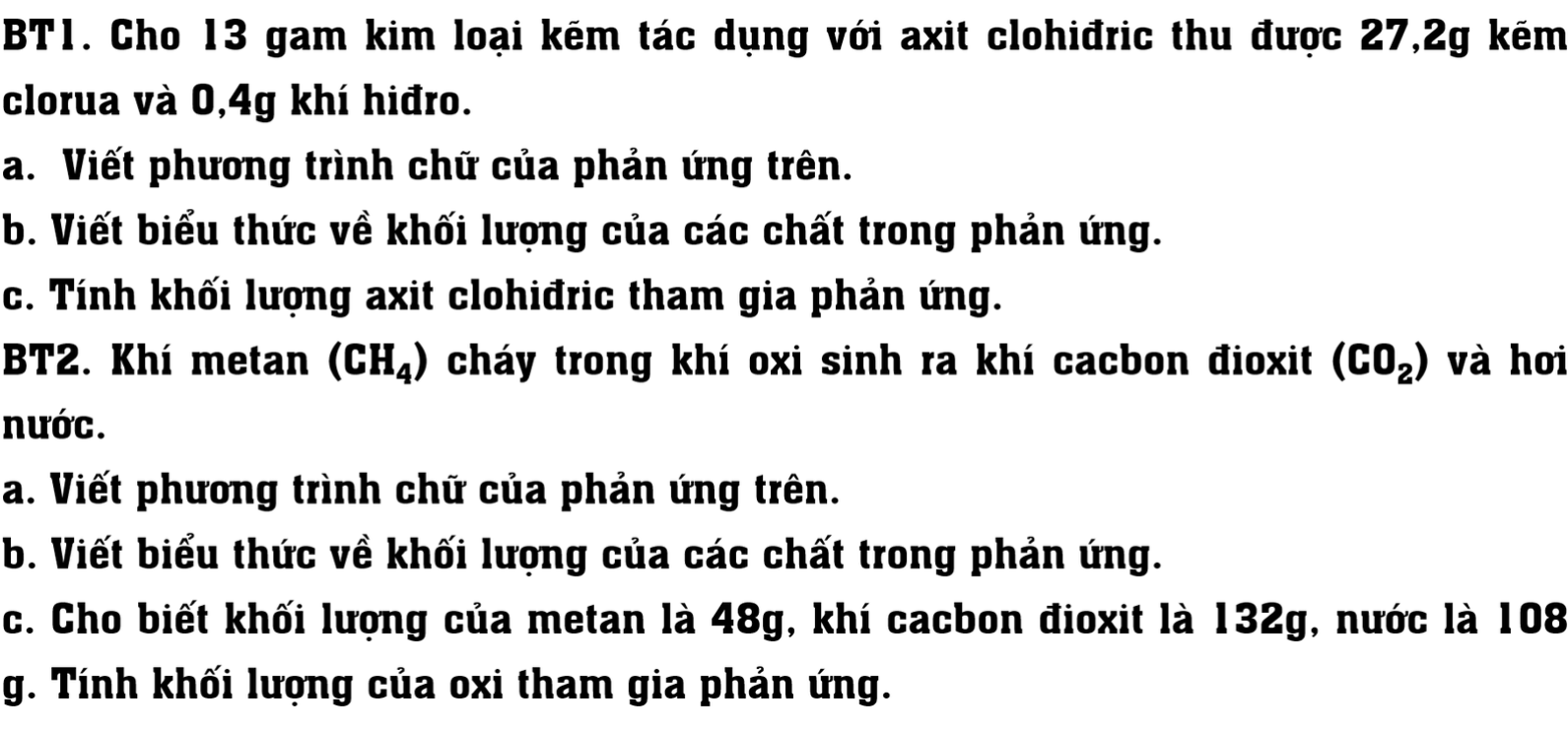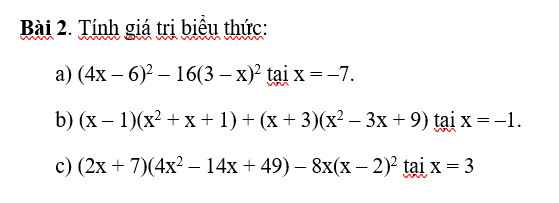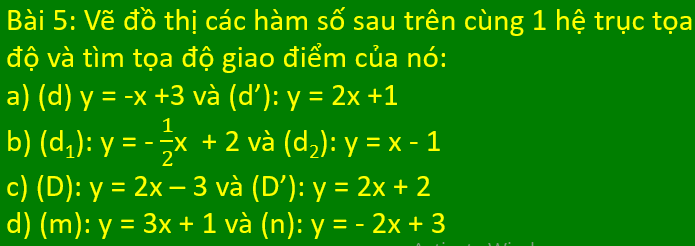Giúp vs bn ạ em sắp hết h rùi

Những câu hỏi liên quan

giúp em vs ạ sắp thi rùi
Lời giải:
$A> \frac{1}{5.6}+\frac{1}{6.7}+\frac{1}{7.8}+...+\frac{1}{100.101}$
$A> \frac{6-5}{5.6}+\frac{7-6}{6.7}+...+\frac{101-100}{100.101}$
$A> \frac{1}{5}-\frac{1}{6}+\frac{1}{6}-\frac{1}{7}+...+\frac{1}{100}-\frac{1}{101}$
$A> \frac{1}{5}-\frac{101}>\frac{1}{6}$
---------------
$A< \frac{1}{4.5}+\frac{1}{5.6}+...+\frac{1}{99.100}$
$A< \frac{1}{4}-\frac{1}{5}+\frac{1}{5}-\frac{1}{6}+...+\frac{1}{99}-\frac{1}{100}$
$A< \frac{1}{4}-\frac{1}{100}< \frac{1}{4}$
Đúng 1
Bình luận (0)
Giúp tớ gấp vs ạ sắp hết giờ rùi cảm ơn nhìu nha^_^
Vẽ 1 tia sáng qua điểm A và đến điểm I
Vẽ tia phản từ ảnh của A là A' đi qua điểm I
Đúng 2
Bình luận (0)
Talk about life on another planet.
giúp e vs ạ!!
em sắp thi nói rùi:((
Bạn tk:
The gas giant Jupiter, the next planet beyond Mars in the solar system, is inhospitable to life in any currently imaginable form. But its icy moons – especially Europa – have potential. A number of missions have flown past Jupiter and its moons on route to other places, but Nasa’s Galileo mission was the first designed to specifically orbit the planet and study its moons. It collected images and data in the Jovian system from 1995 to 2003, passing Europa 12 times.
Jupiter’s moon Europa is one of the most likely places to harbour life outside Earth, with its liquid oceans and gravitational energy sources
Pictures and data collected by this spacecraft suggest that Europa has a layered structure like Earth: an iron-rich core, a rocky mantle and a crust of ice. Magnetic field measurements found an electric current inside, consistent with a salty liquid ocean beneath the thick crust of ice around the whole planet. Photographs showing huge cracks in the ice, taken by the same mission, support this idea.
Europa’s surface resembles Earth’s sea ice in Antarctica, explains François Poulet from the Institute of Space Astrophysics at the Université Paris-Sud in France: ‘It indicates that the ice is geologically pretty young and it could be proof of its interaction with a reservoir of liquid water.’ In December 2012, the Hubble Space Telescope also detected water vapour above Europa’s South Pole and it was proposed this came from erupting water plumes. Spacecraft have not yet seen these plumes, however, so if they do exist they must be intermittent.
So, Europa probably has water. But what about the other two necessary components to be habitable? It has a source of heat energy coming from the friction of being pulled towards Jupiter’s gravitational field by different amounts during different stages of its elliptical orbit. There is also plenty of radiation around Jupiter to potentially start chemical reactions (strong enough to also very quickly destroy any organic compound formed). But whether it has the correct raw chemical ingredients isn’t yet known; modelling suggests that it might, but more hard data is needed.
In 2022, both the European Space Agency (ESA) and Nasa plan to launch spacecraft that will get up close and personal with Europa. ESA’s Jupiter Icy Moons Explorer (Juice) will take over seven years to reach the Jovian system. ‘We will arrive at the end of 2029 and start operation during 2030,’ says Poulet, a member of the team developing the visible and infrared spectrometer onboard called Majis (Moons and Jupiter Imaging Spectrometer). The main target of the Juice mission is Ganymede, another of Jupiter’s moons, but Europa will receive two flybys. Majis will characterise the surface composition of this moon and – together with the UV spectrometer onboard – determine the composition of Europa’s very thin atmosphere. Other cameras and spectrometers will also help build understanding of this icy world’s interior and crust.
For Nasa’s Europa Clipper mission, Europa is the star of the show. While the seemingly obvious mission would be to orbit Europa for a few years, any spacecraft doing this would be exposed to life-shortening radiation from Jupiter. Instead, Europa clipper will orbit Jupiter, dipping in and out of its radiation belt. It will carry out at least 45 close flybys of Europa over three and a half years. A mixture of cameras and spectrometers will examine the moon and its tenuous atmosphere. If the water plumes above the South Pole do exist, it will also be able to fly through these and therefore directly measure the chemical composition of the moon’s ocean. If the Europa Clipper launches in 2022, there are two possible arrival times for it: 2025, if Nasa’s new Space Launch System (SLS) that is currently in development is used, or January 2030, if a traditional rocket is used.
Đúng 1
Bình luận (1)

mọi người ơi giúp e với ạ em sắp nộp rùi. Em cảm ơn nhiều ạ!!
Bài 1.
a, PTPƯ: kẽm + axit clohidric → kẽm clorua + hidro
b, Theo ĐLBTKL ta có:
\(m_{Zn}+m_{HCl}=m_{ZnCl_2}+m_{H_2}\)
c, Ta có: \(m_{HCl}=m_{ZnCl_2}+m_{H_2}-m_{Zn}=27,2+0,4-13=14,6\left(g\right)\)
Bài 2:
a, PTPƯ: metan + oxi → cacbon dioxit + hơi nước
b, Theo ĐLBTKL ta có:
\(m_{CH_4}+m_{O_2}=m_{CO_2}+m_{H_2O}\)
c, Ta có: \(m_{O_2}=m_{CO_2}+m_{H_2O}-m_{CH_4}=132+108-48=192\left(g\right)\)
Đúng 2
Bình luận (0)
PT chữ: Metan + Oxi \(\xrightarrow[]{t^o}\) Cacbon đioxit + Nước
Bảo toàn khối lượng: \(m_{O_2}=m_{CO_2}+m_{H_2O}-m_{CH_4}=192\left(g\right)\)
Đúng 3
Bình luận (1)
Bài 1:
PT chữ: Kẽm + Axit clohidric \(--->\) Kẽm clorua + Hidro
Bảo toàn khối lượng: \(m_{HCl}=m_{ZnCl_2}+m_{H_2}-m_{Zn}=14,6\left(g\right)\)
Đúng 2
Bình luận (0)
 giúp em với e sắp đến hạn rùi ạ
giúp em với e sắp đến hạn rùi ạ
a: Ta có: \(\left(4x-6\right)^2-16\left(x-3\right)^2\)
\(=16x^2-48x+36-16x^2+96x-144\)
\(=48x-108\)
\(=48\cdot\left(-7\right)-108\)
\(=-444\)
b: Ta có: \(\left(x-1\right)\left(x^2+x+1\right)+\left(x+3\right)\left(x^2-3x+9\right)\)
\(=x^3-1+x^3+27\)
\(=2x^3+26\)
\(=-2+26=24\)
Đúng 0
Bình luận (0)
Việc triều đình Nguyễn liên tục kí các bản hiệp ước đầu hàng Pháp em hãy nêu cảm nhận của em về vấn đề chủ quyền và độc lập dân tộc (giúp mik vs mik sắp thi rùi ạ:((()
Em nhận thấy, việc triều đình nhà Nguyễn kí các hiệp ước đầu hàng thực dân Pháp chẳng khác nào tự tay dâng đất nước trao cho giặc. Đó là hành động ngu muội, thiếu trách nhiệm của triều đình nhà Nguyễn đối với đất nước, với nhân dân.
Đúng 1
Bình luận (0)
Em nhận thấy, việc triều đình nhà Nguyễn kí các hiệp ước đầu hàng thực dân Pháp chẳng khác nào tự tay dâng đất nước trao cho giặc. Đó là hành động ngu muội, thiếu trách nhiệm của triều đình nhà Nguyễn đối với đất nước, với nhân dân.
Đúng 0
Bình luận (0)
Việc triều đình Nguyễn liên tục kí các bản hiệp ước đầu hàng Pháp em hãy nêu cảm nhận của em về vấn đề chủ quyền và độc lập dân tộc (giúp mik vs mik sắp thi rùi ạ:((()
Chủ quyền đọc lập của dân tộc VN bị đe dạo. Các vua nhà Nguyễn quà hèn nhác.Vì vậy để dành lại độc lập chúng ta nên nổi dậy
Đúng 0
Bình luận (0)
Bạn tham khảo nhé!!!!!
Việc mà triều đình nhà Nguyễn liên tục phải kí các bản hiệp ước để xin nhị hòa với Pháp khiến cho chủ quyền độc lập của dân tộc Việt Nam lúc này bị đe dọa, hầu hết các vị vua triều Nguyên quá hèn nhác (Trừ vua Hàm Nghi, vua Thành Thái và vua Duy Tân). Vì vậy dưới triều Nguyễn, hàng loạt các cuộc khời nghĩa của nông dân liên tục bùng nổ
Đúng 0
Bình luận (0)

giúp e với sắp đến h e nộp rùi ạ
a: \(4x^2-6x=2x\left(2x-3\right)\)
b: \(9x^4y^3+3x^2y^4=3x^2y^3\left(3x^2+y\right)\)
c: \(x^3-2x^2+5x=x\left(x^2-2x+5\right)\)
d: \(3x\left(x-1\right)+5\left(x-1\right)=\left(x-1\right)\left(3x+5\right)\)
e: \(2x^2\left(x+1\right)+4\left(x+1\right)=2\left(x+1\right)\left(x^2+2\right)\)
f: \(-3x-6xy+9xz=-3x\left(1+2y-3z\right)\)
Đúng 0
Bình luận (0)
giúp em vs ạ. 4h em phải nộp rùi ạ
























